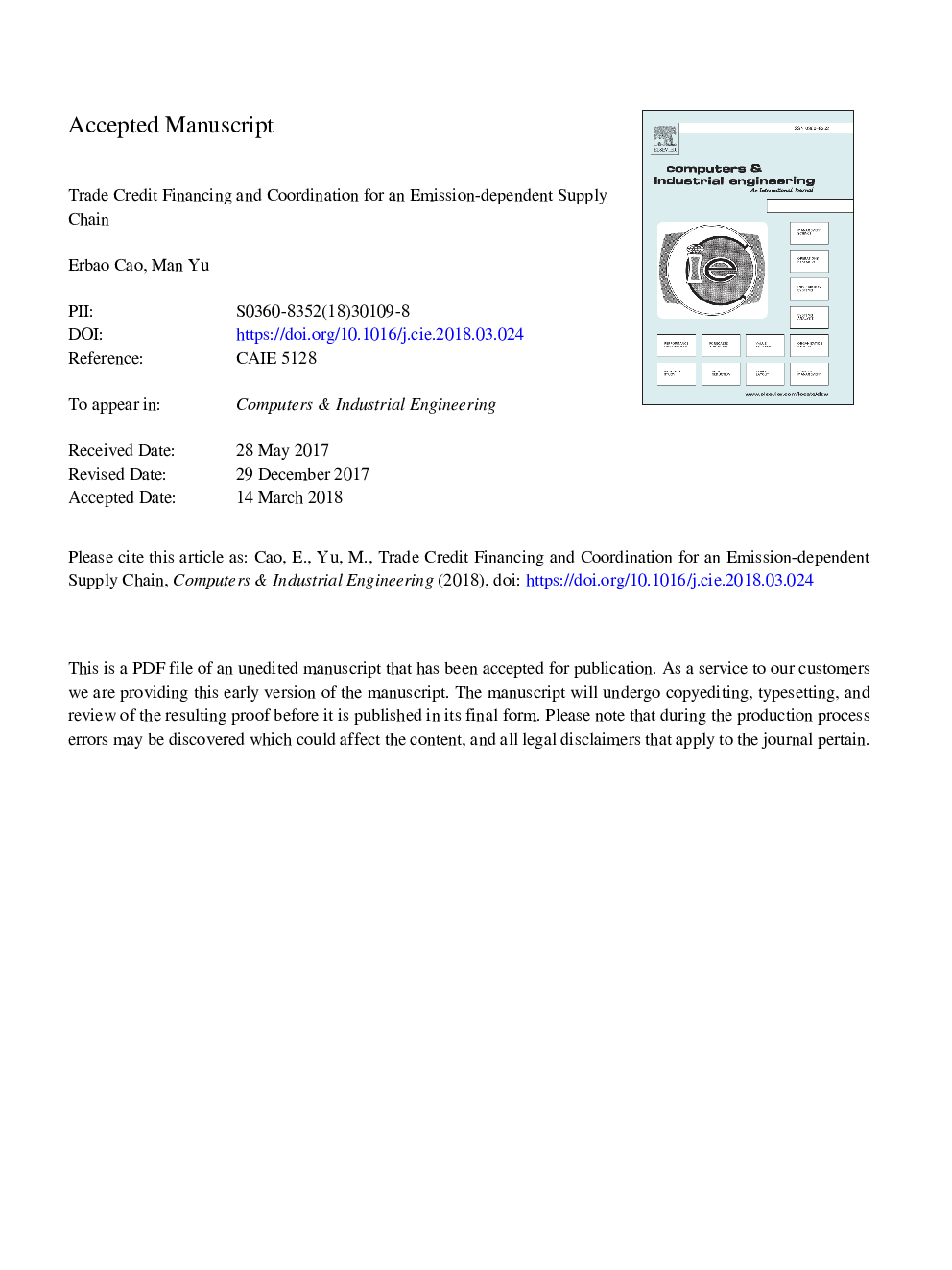| Article ID | Journal | Published Year | Pages | File Type |
|---|---|---|---|---|
| 7541091 | Computers & Industrial Engineering | 2018 | 49 Pages |
Abstract
Under carbon cap-and-trade mechanism, we investigate the interaction of financial decision and operational decision in an emission-dependent supply chain consisting of one manufacturer and one capital constrained retailer who funds her business by trade credit from the manufacturer. We find that the optimal ordering quantity is irrelevant to carbon emission cap under centralized decision. While under decentralized decision, the retailer purchases more products with less internal working capital and smaller carbon cap. We also find that the manufacturer prefers to cooperate with a medium rich retailer to earn more profit. Furthermore, a general contract (including quantity discount contract, revenue sharing contract and buyback contract) can coordinate the emission-dependent supply chain with a capital constrained retailer. When coordinating by a revenue sharing contract, the capital constrained retailer can earn more profit than the well-funded retailer. We further investigate the scenario when the retailer is loss aversion, and find that the retailer will order fewer products. Besides, under the revenue sharing contract, a higher loss aversion degree accompanies with a smaller profit sharing proportion, which implies that a manufacturer can earn more profit when cooperating with a loss aversion retailer.
Related Topics
Physical Sciences and Engineering
Engineering
Industrial and Manufacturing Engineering
Authors
Erbao Cao, Man Yu,
